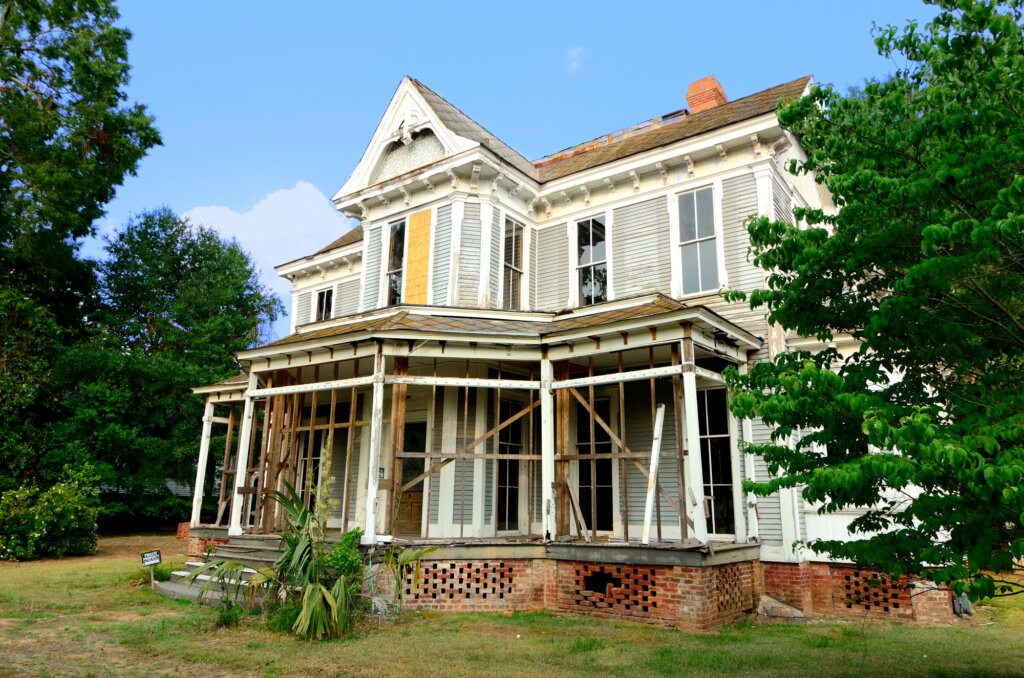
Selling an Inherited Mobile Home in Nebraska
Acquiring an inherited property can pose challenges, both emotionally and financially. Are costly upgrades and repairs necessary? How much will you owe in taxes? Is there a will in place, or must you navigate the probate process? Despite these considerations, inherited properties present a lucrative opportunity for real estate investors and buyers seeking a discounted property to personalize. So, what steps must a homeowner take to sell an inherited property? Are there specific measures required for this type of transaction? And if you don’t want to deal with any of this, remember that we buy mobile homes and can take away all your stress. You can skip these emotionally draining questions and just get cash for mobile homes. This article aims to outline the process of selling an inherited mobile home in order to potentially yield a profit.
Manage Stress
Inheriting a mobile home can be a bittersweet experience, and the selling process can add stress to an already emotional time. Remember, it’s okay to prioritize your well-being. Delegate tasks to friends or hire professionals for cleaning, repairs, or paperwork. Set realistic timelines and don’t be afraid to adjust them if needed. Communicate openly with family members involved to avoid misunderstandings. Most importantly, allow yourself time to grieve and process your emotions – selling the mobile home doesn’t have to happen overnight.
How To Sell An Inherited Property in Nebraska
Have you recently inherited a property and are unsure about the next steps to take? In many states, an inherited property is required to go through the probate process for the courts to establish the legal owner.
Probate court for an inherited mobile home is a legal process where the court oversees the distribution of the property to the rightful beneficiaries after the owner’s passing. If the deceased mobile home owner did not have a will or a trust in place, the property will likely have to go through probate to determine the rightful heirs and settle any outstanding debts or claims. The probate process can be time-consuming, costly, and subject to court supervision, which can be inconvenient for the beneficiaries. It’s essential to follow the specific probate laws in the relevant jurisdiction and seek legal guidance to navigate the process effectively and ensure a proper transfer of ownership for the inherited mobile home.
- Determine the Executor
When dealing with inherited properties tied to a will, identifying the executor of the estate is typically a straightforward process. A crucial aspect of any will is designating an executor capable of fulfilling the deceased individual’s wishes during the probate proceedings. It’s important to note that any assets specified in a will cannot be sold until the document is validated by the Court. Once the will receives approval, the assigned executor gains the authority to execute the deceased person’s intentions. However, if the will faces contention or is non-existent, the procedure may become prolonged as the Court steps in.
If the will encounters disputes or is absent, the probate court will designate an independent party as the estate’s administrator. These administrators perform duties similar to an executor, overseeing the execution of the deceased’s wishes outlined in the will, settling the estate’s debts, and distributing assets accordingly. Moreover, they might assess whether any real estate holdings must be sold to settle the estate’s obligations, such as outstanding taxes and mortgages.
- Working with Lawyers and Real Estate Agents
Dealing with the complexities of probate can be daunting, which is why having a knowledgeable attorney by your side to help navigate the process of selling an inherited home is essential. Once you receive approval from the probate court to proceed with selling the property, the next crucial step is to work with a real estate agent who specializes in handling inherited homes. A skilled agent familiar with probate matters will be well-versed in the intricacies and regulations involved in such transactions. They can guide you in finding the right buyer to get the best possible value for the inherited property. Furthermore, they can offer valuable advice on which repairs and upgrades are worth investing in and which ones are not. Following their recommendations could mean the difference between a quick, profitable sale and being stuck with a property that sits on the market and sells below its true market value.
- Resolve Any Debts
When considering an inheritance, it’s common to envision receiving a grand estate from a distant relative. However, the reality often involves addressing potential obstacles like property liens, overdue taxes, and lingering mortgages. These financial responsibilities can significantly influence the profitability of selling the inherited property. Regrettably, acquiring assets also means taking on any associated debts, whether they stem from taxes, mortgages, or credit lines. Before reaping the benefits of the estate, it’s essential to resolve these obligations. While a house is typically seen as a valuable possession, it can also turn into a financial strain. Consulting with a seasoned estate advisor can offer insight into the various strategies available for handling the inherited estate.
- Clean & Restore the Home
After finalizing ownership of the property, the next crucial decision is to determine if you will reside in it, lease it, or sell it. In the event of a loved one’s passing, they may leave behind a home that requires significant attention. Whether the property has suffered from years of neglect and demands extensive cleaning and repairs, or if no updates have ever been made, necessitating a complete renovation to enhance its market appeal, this aspect of inheritance is frequently overlooked.
Do all heirs have to agree to sell the property?
When it comes to selling a mobile home you’ve inherited, the process of getting agreement from heirs will depend on the established ownership status. If ownership is clearly defined through a will or probate court, individual heirs are not required to agree to the sale. However, in cases where ownership is not determined, such as in situations without a will or with a court-appointed administrator, all heirs must provide their consent for the sale to proceed. This requirement also extends to properties that are auctioned by the court to settle the estate’s debts. In instances where a buyer purchases a mobile home at auction but encounters resistance from some heirs, the sale is typically put on hold until a resolution is achieved.
- How to Settle a Disagreement
When dealing with disagreements among heirs over an estate, it is crucial to have an executor in place. An executor acts as a point person to ensure that the deceased’s wishes, as outlined in the will, are carried out smoothly. This helps prevent disputes over asset distribution. If there is no appointed executor and the will is being contested, the next step may involve hiring a mediator. Engaging a neutral third party to facilitate discussions can be a cost-effective alternative to pursuing a legal resolution through probate court.
- Best Practices
If you find yourself facing challenges with the executor of a will, it can lead to disputes within the family. It is not uncommon for conflicts to arise when a family member is appointed as the executor or trustee. In such situations, one possible solution is for the individual to decline the appointment and opt for an impartial fiduciary, like an estate-planning attorney, to manage the will instead. By stepping aside and allowing a neutral party to take over, you may prevent arguments and provide everyone with the necessary time and space to navigate through difficult emotions before any irreparable damage is done to your family relationships.
How is inherited property taxed when sold?
In 2020, state and local governments in the United States amassed more than $5.3 billion in revenue from estate and inheritance taxes. The variance in laws and regulations from one state to another highlights the importance of conducting thorough research and seeking advice from a lawyer well-versed in taxes and estate planning. This becomes crucial whether you are navigating a sudden inheritance or drafting your own will.
State Tax Laws
Understanding the tax implications of selling an inherited property is crucial. Depending on the state, you may be subject to an estate tax, inheritance tax, or capital gains tax on the property you’ve inherited. Currently, twelve states enforce an estate tax, five have an inheritance tax, and one state imposes both types of taxes.
- Capital Gains Tax on Inherited Property
What is the capital gains tax, and which states require it? The capital gains tax is a tax paid on the appreciation of assets inherited through an estate, levied when the asset is sold for a profit. This tax is calculated based on the difference between the sale price and the purchase price of the property. Most states require this tax on inherited properties, although there may be exemptions for sales below a certain threshold. For instance, in Washington State, no capital gains tax is imposed on properties sold for less than $250,000. There are also legal strategies to potentially minimize or avoid the capital gains tax, such as reinvesting the proceeds in another property. It is advisable to seek guidance from a tax lawyer familiar with the relevant laws in the area where you plan to sell your property before proceeding.
- Estate Taxes
An estate tax is a tax levied on the total taxable value of an estate before it can be inherited. The good news is that there is a minimum threshold for the estate tax. In 2023, this threshold is set at $12.92 million for individuals. This means that individuals will only be subject to the estate tax if the total taxable value of their estate exceeds $12,920,001. Any amount below this threshold can be passed on to heirs tax-free. Interestingly, despite the high threshold, many states are choosing to repeal their estate tax laws each year, resulting in a loss of significant revenue.
- Inheritance Taxes
Inheritance tax is only applicable in six states, including Maryland, Nebraska, Kentucky, New Jersey, Pennsylvania, and Iowa. If you live in one of these states and inherit assets or properties, you will be required to pay taxes on them. However, if the deceased lived in one of the 44 states without an inheritance tax, you may not have to pay anything.
Documents required to sell an inherited property
When selling an inherited property, it is crucial to have the necessary legal documents that prove your authority as the executor or administrator of the estate. These documents, issued by the court, are essential for establishing your ownership rights over the property. As you prepare to close the sale with a potential buyer, ensure you have the deed, title insurance, or other pertinent legal records that validate your ownership of the inherited property.
It is important to conduct thorough research to determine the additional documents required for selling an inherited property in your area. Certain jurisdictions may necessitate extra property-related paperwork such as past surveys, inspections, or other relevant records concerning the property’s condition and history.
Recap – Selling an Inherited Mobile Home
Selling an inherited mobile home can be a complex process that requires careful consideration and planning. Before listing the property, it’s important to assess its condition and gather any necessary documentation, such as the title and proof of inheritance. You may also need to address any outstanding debts or legal issues related to the home. Once you’re ready to sell, consider working with a real estate agent who has experience with mobile homes to help navigate the selling process. Pricing the home appropriately and staging it to appeal to potential buyers can also help maximize your chances of a successful sale. Keep in mind that selling an inherited property can come with emotional challenges, so it’s important to seek support and guidance throughout the process.
Is there an easier way to sell?
Looking to sell an inherited mobile home in Nebraska? Sell Lincoln Mobile Homes is your go-to direct house buying company, specializing in purchasing inherited mobile homes for cash with minimal stress and fees. We buy mobile homes. Receive a competitive cash offer for your inherited house, condo, or property by contacting us today.
We are interested in purchasing your mobile home, no matter its condition. We also provide support with the intricate probate house selling process, making it easier for you. Our aim is to simplify the home selling journey, enabling you to move seamlessly into the next phase of your life.
If you have a property entangled in probate that you wish to sell, reach out to us at (657) 206-8013 at any time to secure a competitive cash offer. We have a strong interest in purchasing properties in any condition, regardless of the financial circumstances of the estate. Whether the house has endured significant damage in a recent storm or has been neglected over the years, requiring extensive upgrades to enhance its market appeal, our fair cash offer stands. Our team of professionals will manage all costly repairs post-acceptance of our offer, simplifying the process of selling an inherited house for you. Get cash for mobile homes today.

